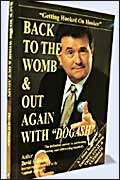|
|
|
Enron's former CEO Kenneth
Lay : Crossing that red line
|
|
|
Ethics
is possibly one of the most abused words in the corporate world.
Spoken of with reverence in boardrooms, it's often the object of
derision and jokes in washrooms. One reason why ethics evokes such
contrasting reactions is that it is poorly understood. Those sitting
in the ivory towers of management see it as an ethereal quality
their organisation must possess in order to become a model corporation,
while those in the trenches-the salesmen, production and purchase
managers-see it at best as a nuisance, a hurdle they must "negotiate"
on their way to their quarterly targets thrust upon them, of course,
by the bosses in the headquarters.
So what does business ethics really mean? According
to Dipankar Gupta, a professor of sociology at Jawaharlal Nehru
University (JNU) and an advisor to KPMG's business ethics and integrity
division, it's not about one thing but a combination of several
aspects. For example, business ethics, he says, "is not about
morality, but about the establishment of transparent norms of interrelationships",
"is concerned with a code of ethics and not just with a code
of conduct", and "is about establishing employee morale
and not just about establishing compliance".
|
|
|
ETHICS INCORPORATED
By Dipankar Gupta
Harper Collins
PP: 220
Price: Rs 395
|
In this book, which probably would have done well to adopt a Goldratt-like
narrative, Gupta not only clarifies what ethics means when applied
to business, but also offers a step-by-step roadmap to its implementation.
And one of the first things he tells you to do is to frame explicit
rules that apply to all. It's easy to see why fuzzy ethics is bad
for organisational morale. Unless the rules are spelt out, different
executives, depending on their relative position and power in the
organisation (besides their personal value system), will employ
ethics differently. One may view making personal phone calls from
a company-provided phone as a breach of ethics, while another may
not turn a hair awarding a contract to a friend or relative, or
even cooking the books. How ethics is defined and adhered to, then,
becomes a function of the corporate culture. Where superlative examples
of ethical behaviour among the top managers are available, there
will be a more ethical organisation at work. Where there is little
of it, short cuts and compromises will be seen par for the course.
But the question is: can businesses be ethical?
Indeed, is it their job to be ethical? Gupta says the answer to
both the questions is yes. According to him, business ethics needn't
be seen as an oxymoron: businesses can be ethical and still be successful.
In fact, he argues that being ethical is actually good for the bottomline.
While in the post-Enron era that rings truer than ever before, the
fact is good corporate governance has always meant good business.
After all, what does a company do when it cheats? It raises its
own risk factor. Lenders will price their loans higher, investors
will expect a higher return, suppliers may insist on cash-on-delivery,
and consumers may be distrustful of the company's products and services,
forcing it to sell at a discount to its competitors. In other words,
if you want yours to be a successful corporation, be good.
 "If
You Want To Be A Long-Distance Player, You Have To Adopt Business
Ethics" "If
You Want To Be A Long-Distance Player, You Have To Adopt Business
Ethics"
JNU professor
Dipankar Gupta on business ethics as they ought to be.
Isn't business ethics an oxymoron?
Yes, that's the way it appears to many of us,
not just in India but elsewhere too. But if you want to be a long-distance
player, you have to adopt business ethics. The CEO, the top executives
of the company must know their company well, they must know what
the people in the company want. In fact, that's the first principle
of business ethics.
Almost all the recent corporate scandals globally have involved
the CEO. Obviously, business ethics isn't something CEOs are losing
sleep over.
If the top people in the company are going to
be crooked, there is no possibility of business ethics really making
its appearance in the company even though there are some ways by
which we could save it. Let us say that the company has a well-established
procedure on very simple things like whistleblowing. If everybody
knows how the process works, what the whistleblower rights are,
then you can put pressure even on the top managers to behave.
But how conducive is the business environment for ethics, considering
that pay-for-performance is now the norm?
It's not easy. But I think if you pick your
people carefully enough, a lot of such problems can be pre-empted.
I don't think top management, which usually sets the performance
goals, is made up of unreasonable people.
But given the quarter-to-quarter pressure, there is a lot of
incentive for employees to cheat or lie...
I think corporate governance can play a very
important role here. If you want corporate governance to really
work, then there are two very simple steps one can take. One is
to make sure the external members meet often enough so that they
become a cohesive group. Two, members of the board shouldn't just
deliberate on matters brought to them. They should actively seek
information. Information from the audit committee, from the compensation
committee etcetera.

BACK TO THE WOMB & OUT AGAIN WITH
"DOGASH''
By David H. Hooker
Modicare Ltd
PP: 185
Price: Rs 300
|
When an entertainer-turned-salesman-turned-motivator
coins a word, it's hard to ignore. The motivator here is David Hooker,
who heads Delhi's Modicare School of Entrepreneurship, and the word
is 'Dogash'. It's an attitude. The reader must figure out what it
means from all the "Dogash says..." blobs of advice (sample:
'Break this rule!'). The book's hook is the entertainer in Hooker;
he even uses a comically misinterpreted psalm from the Bible to
sell free will. The womb bit? You, as a sperm, have already been
one helluva winner getting to the ovum and then all the way out.
With Dogash, you get back the spunk. Some of it, though, sounds
like a comic misinterpretation in itself. Take the Dogash commandment,
"If you know the answer will be no-don't ask the question!"
Well, too bad; here's the question anyhow: do you expect to have
that engraved in stone?
|
